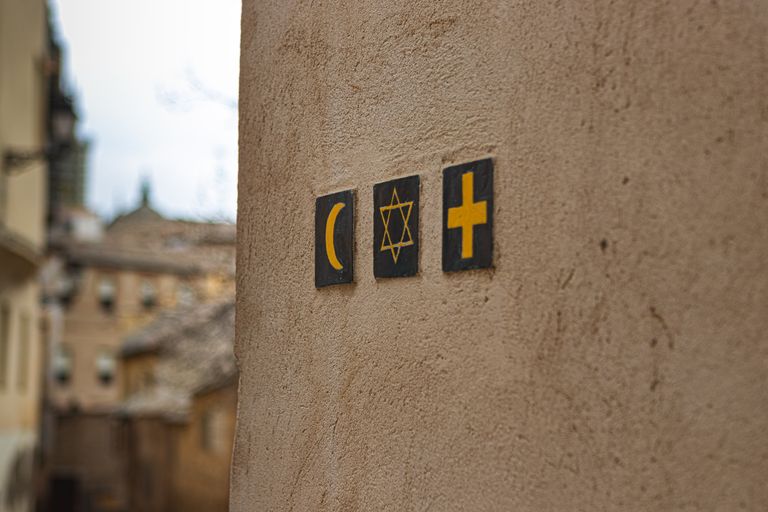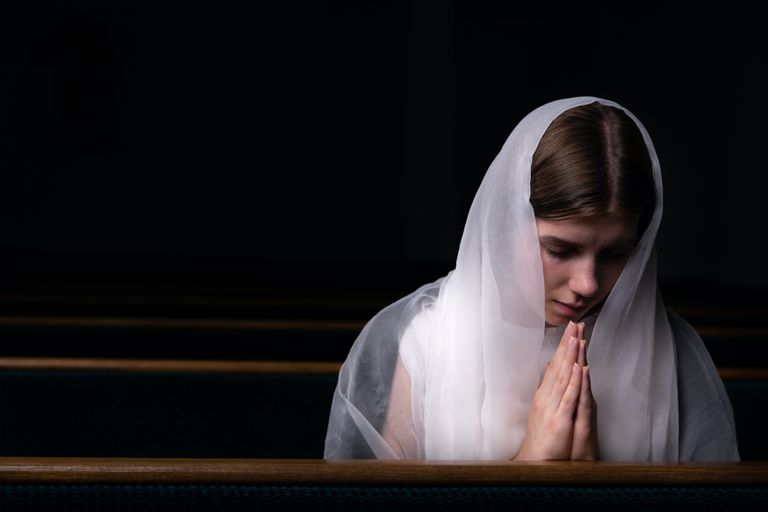

The recurring patterns in the four gospels are consistent; Jesus and religion don't mix.
This is their message, which we are only just beginning to understand.
The church, which is intended to be the contemporary manifestation of Christ's body on earth, is engaged in a protracted war that demands to be won. However, there has been a fundamental apathy. Since the Son of God was installed by a religious ego known as "we do church well," much of the spiritual terrain has lost its illumination.
We are in desperate need of the awakening power of the Holy Spirit. Wake us up, not the world of unbelievers, not the criminals and con artists, but us! In far too many locations, an image that resembles the garden scenario with Jesus praying and the disciples dozing off contentedly is beginning to take shape.
In the midst of vital action itself, religion makes one fall asleep. In many faiths, the ritualistic repetition of acts of worship gradually replaces God as the object of adoration. On the other hand, Christ-ianity is alive with eager anticipation because the worshipper perceives a reality of one's spirit connected to a reality of One's Spirit.

As the heart becomes involved in bringing God honor, imagination becomes captivated. At this point, one has no interest in going through the motions when it comes to church. The habits of the Lower cannot satiate the longing for the Higher.
Motion is the foundation of religion. Part of it is what we refer to as "acts of worship". Are we genuinely, actually, actively worshiping God? That is the question we must ask ourselves. This achievement is gratifying, rejuvenating, and reconstructing. We have to give thanks to something or someone greater than ourselves. If we do not stop monitoring those who are superior to us, ultimately one or more of them will lose their footing in clay.
It is a daily call, in my opinion, because the battle to keep religion out of the way of Christ-ianity is a daily one. I preached the Bible for far too long without mentioning the Biblical Christ. Although I had my own viewpoints, biases, and positions that were supported or praised, Jesus was never the focus of my work or ministry. May we gradually pick up new momentum and then renewed momentum.
The main component of the term "Christ-ianity" is Christ. Jesus and religion don't mix, but my, how we still attempt to mold the two into our idealized forms.



Los patrones recurrentes en los cuatro evangelios son consistentes; Jesús y la religión no se mezclan.
Este es su mensaje, que apenas estamos comenzando a comprender.
La iglesia, que pretende ser la manifestación contemporánea del cuerpo de Cristo en la tierra, está comprometida en una guerra prolongada que exige ser ganada. Sin embargo, ha habido una apatía fundamental. Desde que el Hijo de Dios fue instalado por un ego religioso conocido como "hacemos bien la iglesia", gran parte del terreno espiritual ha perdido su iluminación.
Tenemos una necesidad desesperada del poder del despertar del Espíritu Santo. ¡Despiértanos, no al mundo de los incrédulos, no a los criminales y estafadores, sino a nosotros! En demasiados lugares, comienza a tomar forma una imagen que se asemeja al escenario del jardín con Jesús orando y los discípulos durmiendo satisfechos.
En medio de la acción vital misma, la religión adormece. En muchas religiones, la repetición ritual de los actos de adoración reemplaza gradualmente a Dios como objeto de adoración. Por otro lado, el cristianismo está vivo con ansiosa anticipación porque el adorador percibe una realidad del espíritu de uno conectada con una realidad del Espíritu de uno.

A medida que el corazón se involucra en honrar a Dios, la imaginación queda cautivada. En este punto, uno no tiene interés en hacer los movimientos cuando se trata de la iglesia. Los hábitos de lo Inferior no pueden saciar el anhelo por lo Superior.
El movimiento es el fundamento de la religión. Parte de esto es lo que llamamos "actos de adoración". ¿Estamos genuinamente, en realidad, adorando activamente a Dios? Esa es la pregunta que debemos hacernos. Este logro es gratificante, rejuvenecedor y reconstructor. Tenemos que dar gracias a algo o alguien más grande que nosotros mismos. Si no dejamos de monitorear a aquellos que son superiores a nosotros, en última instancia, uno o más de ellos perderán el equilibrio.
Es un llamado diario, en mi opinión, porque la batalla para mantener la religión fuera del camino del cristianismo es diaria. Prediqué la Biblia durante demasiado tiempo sin mencionar al Cristo bíblico. Aunque tenía mis propios puntos de vista, prejuicios y posiciones que eran apoyadas o elogiadas, Jesús nunca fue el centro de mi trabajo o ministerio. Que gradualmente tomemos un nuevo impulso y luego un impulso renovado.
El componente principal del término "cristianismo" es Cristo. Jesús y la religión no se mezclan, pero vaya, cómo todavía intentamos moldear a los dos en nuestras formas idealizadas.

:::Discord :::Whatsapp:::Twitter :::